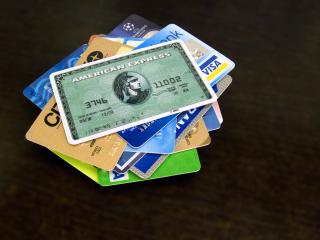Repaying Credit Cards in Chapter 13
Most people do not use chapter 13 to repay credit card debts. It’s often the case that a debtor is permitted under the bankruptcy code to obtain confirmation of a chapter 13 plan that pays nothing to unsecured creditors. In another post, I address the typical treatment of credit cards in the ordinary chapter 13.
Such a pay-nothing result can be a great help to a person struggling under the weight of credit card debt. It's easy to get caught up in the idea of eliminating credit card debts in chapter 13 without payment, and start thinking that is the only relief chapter 13 bankruptcy can provide for credit card debt. This isn't true, and chapter 13 can provide help with credit card bills, even for the small percentage of people required by bankruptcy laws to pay the full balance of these unsecured credit card debts.
If you are struggling with credit card payments, wouldn't a 0% interest 5-year consolidation loan help a great deal with making payments? When a bankruptcy debtor's comparable high income requires payment of credit cards, the amount paid is determined from the balance on the day the bankruptcy is filed. Credit card lenders don't get their absurd default interest rates, they don’t get their contract interest rates, and they don't even get the inflation rate. They merely get the amount owed on the date the bankruptcy was filed, with no more interest.
An Example
To illustrate the benefit available, let's consider an example. Say a person has $60,000 in credit card debt, with an average interest rate of 18%. The person lives alone, and is fortunate to have an above-average salary that would enable her to pay some money to her credit card debts. However, the debt never seems to go away, with $900 a month in interest and minimum payments totaling over $1,400.
In a chapter 13 plan not requiring interest, the balance could be paid off with disbursements of $1,000 a month for 5 years (the actual plan payment would be closer to $1,100 to account for costs of administration). For comparison, $1,100 payments at the contract interest rate would take 9.5 years to pay the debt, as opposed to 5 years in chapter 13. If one wanted to pay it off in 5 years direct to the lender, monthly payments of over $1,500 would be required.
If the person paid $1,100 for 9.5 years, they would stand to pay over $65,000 interest on a $60,000 debt. Even with $1,500 payments for 5 years, interest would still exceed $30,000. As you can see, the repayment through a chapter 13 plan can save a tremendous amount of money.
The Bottom Line
Most people don't have income or assets that would require repayment of credit cards in chapter 13 bankruptcy. Those who do have repayment plans still benefit from highly favorable repayment terms that turn the tables on oppressive credit card interest rates.
H/T to Oceanside Bankruptcy Attorney Mark Kurowski, whose spreadsheet assisted with the computation of the example in this post.
Credit Cards by Andres Rueda, Licensed via a Creative Commons License, original at http://www.flickr.com/photos/andresrueda/3027534098/.
- Log in to post comments




